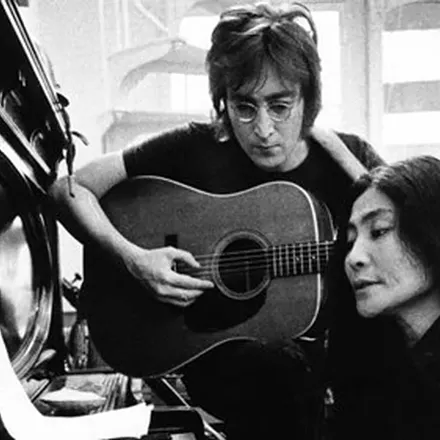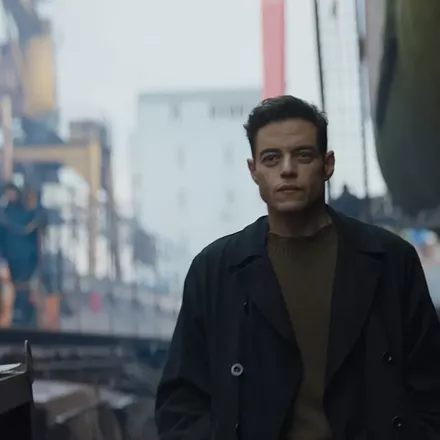This is a boxing movie. It's rough and it shows people getting beaten to a pulp in brutal fight scenes made all the more compelling by furious camera movements and lightning-fast editing. It's about scrappy young upstarts who aim high, then find out just how difficult and unforgiving the game can be. It's about people who have made boxing their life, and now don't know how to do anything else.
But that's only the exterior of Clint Eastwood's new film, which he produced, directed, co-stars in and for which he composed and performed the soundtrack music. The interior is about respect, loyalty and love. The film tells an achingly beautiful story that is so filled with heart, so wide-ranging in emotions, it's going to be embraced by those who know nothing about the sport as well as aficionados who will celebrate its realism.
Eastwood plays Frankie Dunn, once a fight manager and trainer, now relegated to operating a rundown little low-tech gym -- two rings, some bags, a place you can practically smell from your seat in the movie theater -- where young hopefuls try to develop into future fighters. He's assisted by Eddie Dupris (Morgan Freeman), a washed-up fighter who once almost grabbed the gold but now mops the gym floor. The two creaky old guys have been together so long, they probably can't remember how far back their love-hate relationship stretches.
Then one day Maggie Fitzgerald (Hilary Swank) walks through the door, plunks down six months of dues in advance, announces that she's tough and wants to learn how to box, and that she wants to be trained by Frankie.
"Girly, tough ain't enough," says Frankie, flatly. And not wanting to be unclear about anything, he adds, "I don't train girls."
But this spunky girl will not take no for an answer, and starts training herself, oblivious to the taunts from all the guys in the place, thankful when Eddie surreptitiously starts offering her some late-night tips.
Of course, circumstances lead to gruff Frankie becoming her trainer. We're never sure why, although enough hints are dropped. Maybe he sees her as someone with definite talent. Maybe he sees her as a sort of replacement for his long-estranged daughter who won't answer any of his letters.
One of the beauties of the film is that the script floats out on little tangents like that. Watching the story of Maggie's ambitious rise from punching bags to sparring partners to a steady climb up through the boxing ranks is certainly the main story. But the unspoken one about Frankie's broken family is also in there, as is one about Danger Barch (Jay Baruchel), a loudmouth, braggart trainee who provides some of the film's comic relief, and yet another about Frankie's antagonistic sessions with his priest.
Character studies turn out to be equally as important as the mayhem in the ring. And the relationships among the three lead characters are really what the film is about. Frankie and Eddie have had some excitement in their lives, though it was long ago. Maggie, pulling herself out of a white-trash background, has had nothing but misery in hers; she's decided that boxing is the only thing that makes her feel good. All three of them have seen a lot of sadness; now really need each other. Their main differences are seen in their eyes. Eddie's lone remaining one is big and soft, Frankie's got the Clint squint, Maggie's eyes gleam with fire.
When Frankie does deign to take on Maggie as a student, he insists that she doesn't ask questions, that she simply listen. She turns out to be the most willing student he's ever had. Her enthusiasm is boundless. If she were a dog, her tail would be wagging constantly.
The film is anchored by an often overused device: voice-over narrative. But in the hands of Freeman, it turns into one of the film's stronger points. He softly, calmly, almost lazily drawls out the story, telling what's happening and what has gone down before, mixing in the basics of boxing along the way. "Boxing is about respect," he says. "Gettin' it for yourself and takin' it from the other guy."
A lack of respect from some corners within Million Dollar Baby leads to a tonal shift, resulting in a great deal of emotional impact upon all of its characters. A change in mood is hard enough to write about convincingly; it takes some talented actors to pull it off on film. Eastwood, Swank and Freeman are fearless in that regard, and they turn in three knockout performances. Under Eastwood's sure directorial hand, audiences will laugh, cry, and maybe even swerve in their seats to avoid a punch. And they'll have a lovely, peaceful, haunting final image to take home with them.




















